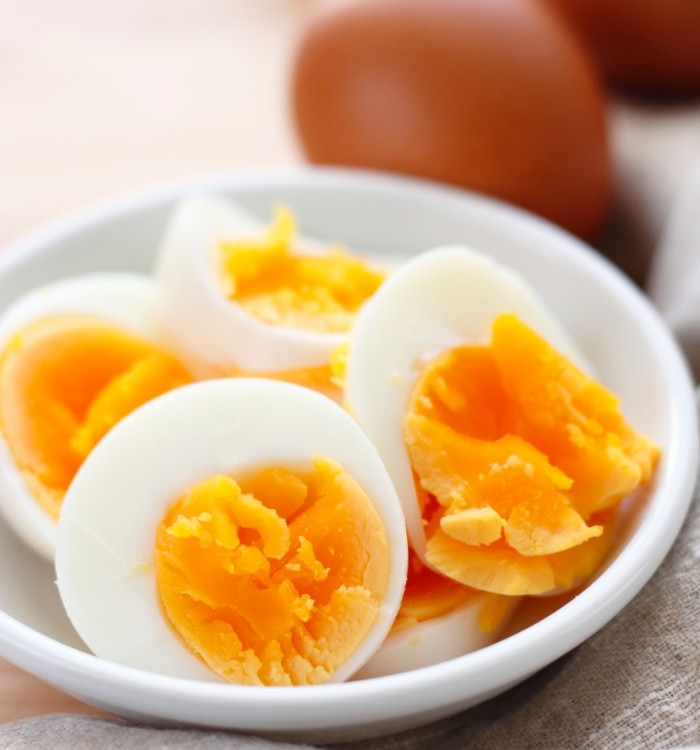
Easy Peel Hard Boiled Eggs
After years of googling how to boil eggs, I finally wised up and learned the best way to make easy peel hard boiled eggs. This recipe for easy peel hard-boiled eggs breaks down the best way to boil eggs so they’re easy to peel every single time.
These are also the perfect tips and tricks to making the best boiled eggs if you’re getting ready to decorate eggs for Easter, or if you’re planning on preparing deviled eggs for an appetizer.
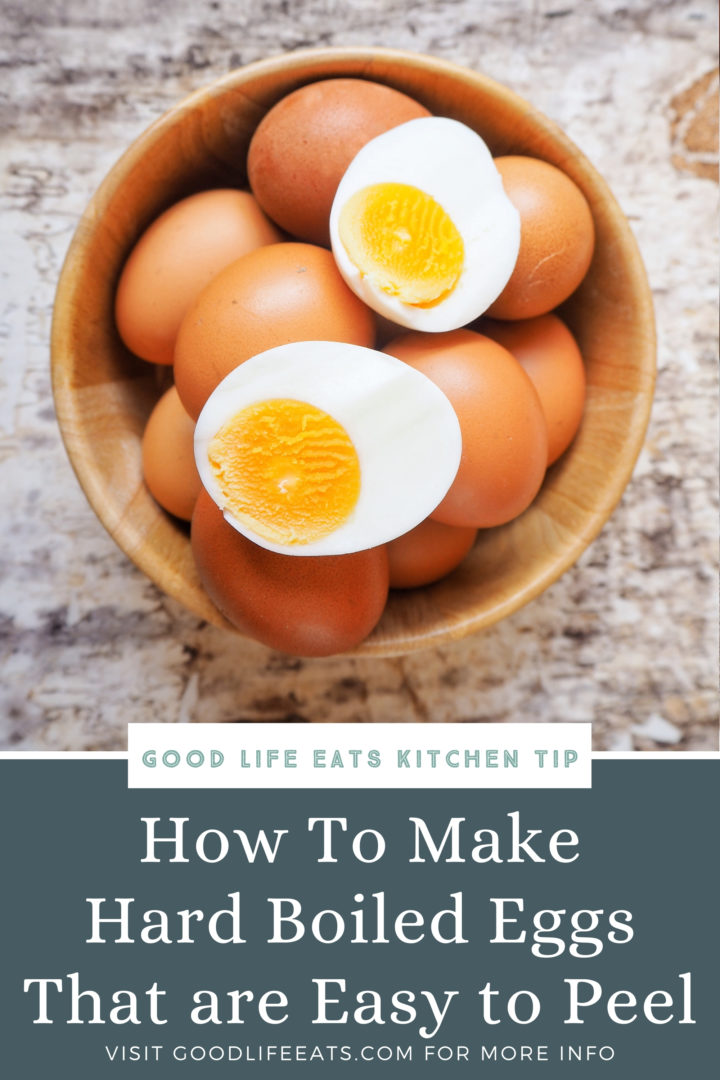
Save these Easy Peel Hard Boiled Eggs to Pinterest!
The Best Hard Boiled Eggs
When Madeline was little, around 2 years old, she was pretty fascinated with eggs. Perhaps bordering on obsession.
She was always asking to hold one when I had eggs out. And unfortunately, she didn’t seem to understand that one wrong move with a raw egg in her hands would crush it.
So I found myself making eggs a lot, but I’ve never been able to figure out the best way to boil eggs.
Madeline never really got into eating them. She just wanted me to open the hard boiled eggs up and remove the white so she could find the “baby egg” (the yolk) inside.
I used to hate cooking hard boiled eggs, even though I enjoy eating them by themselves for a snack or chopped up on top of a salad. Why did I hate making them? Because I would either under or overcook the egg.
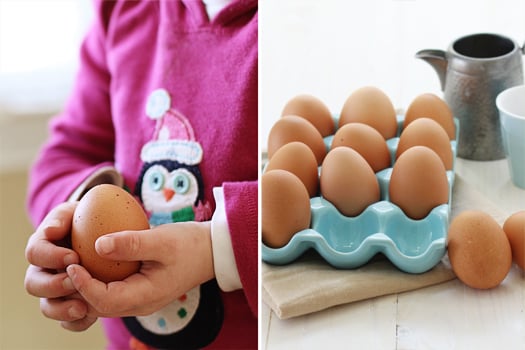
Save these Easy Peel Hard Boiled Eggs to Pinterest!
Perfectly Cooked Hard Boiled Eggs
Overcooked hard boiled eggs are just gross, in my opinion. Soft boiled eggs have never appealed to me. The same way I’ve never really liked over easy eggs. I have never been a fan of a runny yolk.
For whatever reason, eggs are just one of those foods that I’m particularly particular about. Rather, I like my eggs perfectly done. Not over cooked, not undercooked.
Perhaps I’m like Goldilocks in that way. For me, my eggs have to be just right.
On top of the doneness issues, the shells were hard to peel away without removing chunks of the white with it, and that was sort of a drag. I mean, how do you peel an egg without the shell sticking? It shouldn’t be that hard!
Thanks to Madeline’s obsession during her younger years, I finally figured out how to make easy peel hard boiled eggs.
I learned that this is just as much about the method as it is the question of how long to boil eggs, so I thought that I’d share my method (thanks to lots and lots of trial and error!).
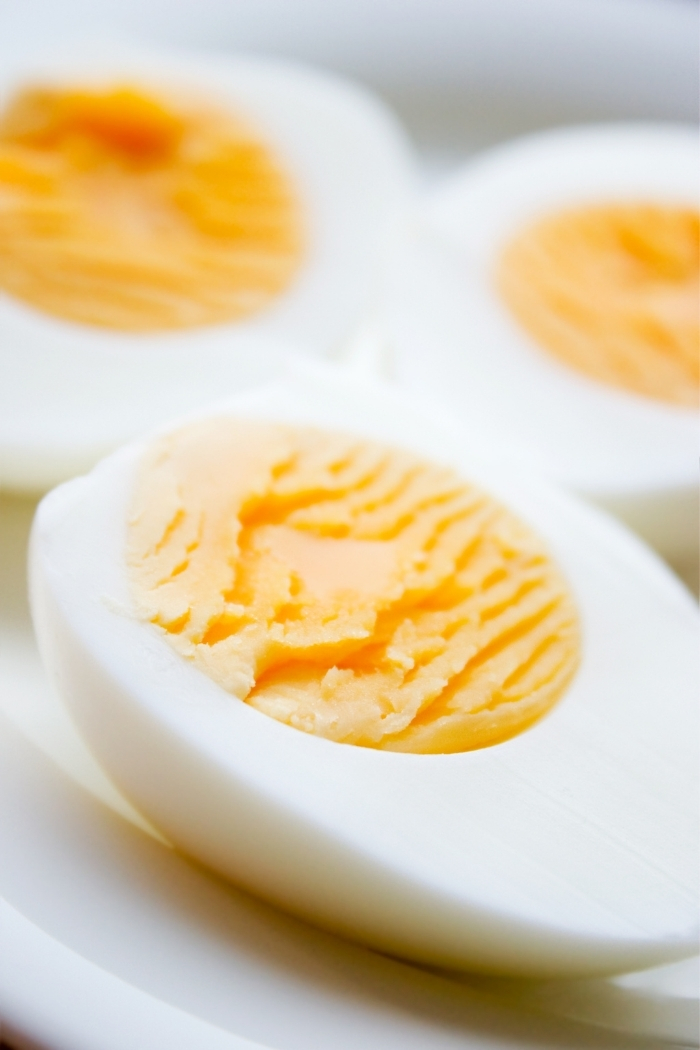
Save these Easy Peel Hard Boiled Eggs to Pinterest!
Tools Needed for Easy Peeling Hard Boiled Eggs
You’ll need a few kitchen tools to prepare these perfect hard-boiled eggs. Here’s what I recommend having on hand before getting started:
- Saucepan or Large Pot – to cook the eggs in.
- Slotted Spoon – helpful for carefully removing cooked eggs from the hot water after cooking.
- Large Bowl of Ice Water – an ice water bath will quickly cool the eggs and prevents them from over cooking.
How to Boil Eggs
Follow these simple instructions for easy peel hard boiled eggs. The following set of instructions have proven to be the best way to boil eggs perfectly every time.
- Put the egg(s) in a pot with cold water that completely covers the egg, plus a little extra water to spare. About an inch or so. The eggs should be in a single layer, so if you plan to boil a lot of eggs make sure your pot is large enough.
- Add one teaspoon of salt to the water.
- Bring the water to a boil over high heat. Let the egg boil for a minute or two.
- Turn the heat off, remove the pot from the burner and place it on an unheated burner or on the counter with a hot pad under it (so as not to damage your countertops) and cover it with a lid.
- Let rest for 10-15 minutes. Letting the egg rest in the hot water cooks the egg evenly without overcooking.
- Remove the hard boiled eggs from the hot water with a slotted spoon. When cool enough to handle, peel the egg.
Hard boiled egg cook times:
Here are my recommendations for how long to cook hard boiled eggs based on how you like your eggs:
- Runny Yolk: runny egg yolks and barely done whites – cook for 5 to 6 minutes.
- Soft-Boiled Eggs: white is cooked but soft and yolk is jammy – cook for 8 minutes.
- Medium Boiled Eggs: white is fully cooked and firm, but center is not dry – cook for 10 minutes.
- Hard Boiled Eggs: white and yolk are both cooked through and firm – cook for 12 to 13 minutes.
The above is simply a quick summary of this tutorial. Check out the free printable recipe card at the bottom of this post for all the detailed instructions for making perfect hard boiled eggs easy to peel.
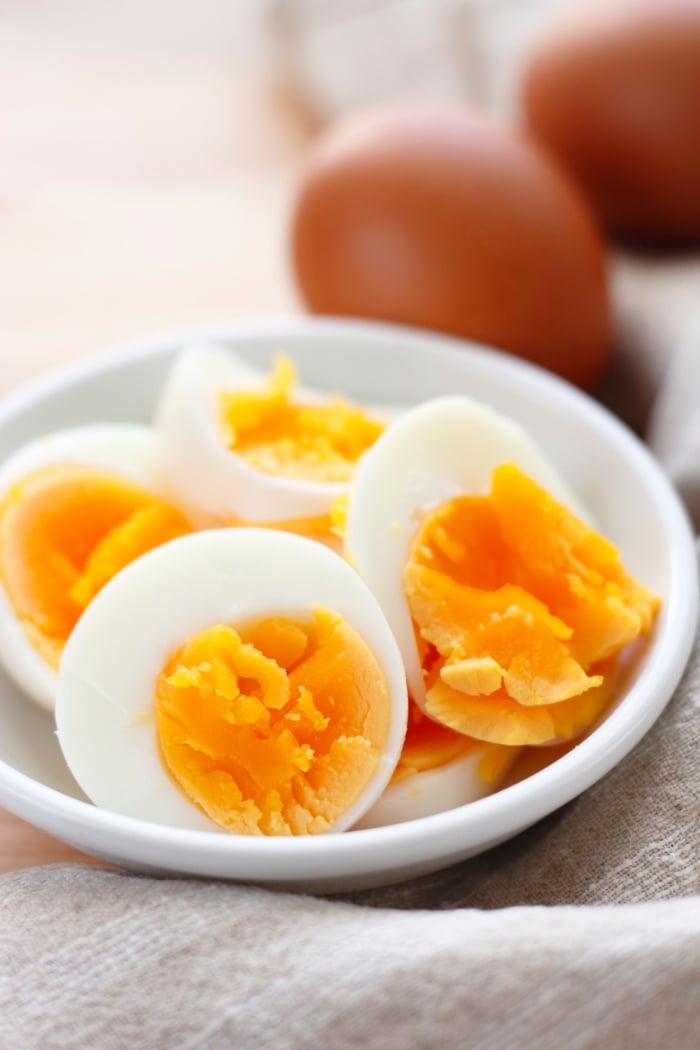
Save these Easy Peel Hard Boiled Eggs to Pinterest!
How to Peel Hard Boiled Eggs
Now that you’ve learned the best way to boil eggs so you’re left with easy peel hard boiled eggs, it’s time we discussed the best way to peel hard boiled eggs. Here’s what I’ve learned about peeling hard boiled eggs:
- Once cool, gently roll the hard boiled eggs on your countertop to create lots of small cracks.
- Then, peel the eggs under cold tap water.
- Once peeled, rinse and dry the eggs and set aside.
Some people like to use a metal spoon to slip between the shell and egg white to help remove the shell, but I find the above way easier.
Tips for Making the Best Hard Boiled Eggs
Everyone has their tips and tricks for making the best hard boiled eggs. Some might be old wives tales, and some actually work. For best results, follow my favorite tips and tricks for perfect hard boiled eggs:
Use Older Eggs When Making Hard Boiled Eggs
Have you ever wondered why is it hard to peel boiled eggs? Me too! The #1 reason is that white’s pH is low. The low pH causes it to stick to the shell membrane.
What can you do? The first thing you should do is plan ahead. That means, when you want to make hard boiled eggs you should begin by buying your eggs about a week in advance of when you’d like to prepare them is best.
If you purchase farm fresh eggs, you might want to consider more than a week in advance.
Cook Eggs in Cold Water
Don’t pre-boil the water when you are making hard boiled eggs. Boiling eggs starting in cold water allows the egg to gradually warm up and prevents over cooking.
Another benefit to starting with cold water when making hard boiled eggs is that the water’s gradual warming will help prevent cracks from forming in the shells when compared to adding eggs to a pot of water boiling rapidly.
By the time the water reaches a rolling boil, the egg will already be partially cooked and much more stable against cracks.
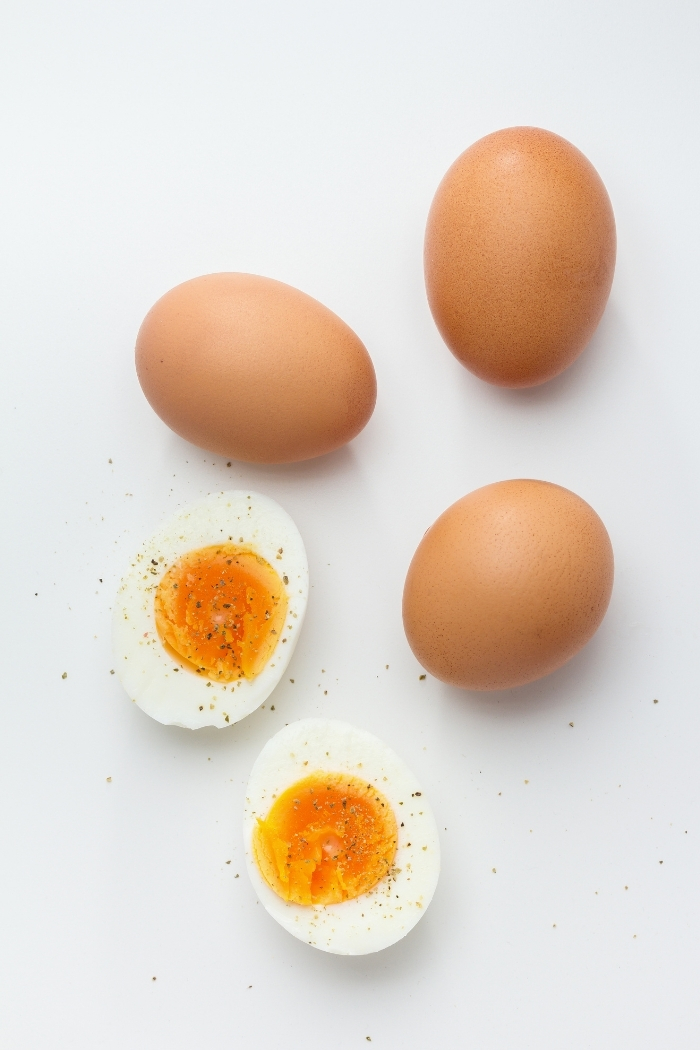
Save these Easy Peel Hard Boiled Eggs to Pinterest!
Add Baking Soda to the Water
Adding 1 teaspoon of baking soda to the water results in easy peeling hard boiled eggs.
Salt the Water
Don’t want to remove chunks of the egg white with the shell when you are peeling it? Adding salt (and using less fresh eggs) also helps with easier peeling of your hard boiled eggs.
Don’t ask me why, but adding the salt to the water definitely helps, so I always boil my eggs this way.
Let the Hard Boiled Eggs Cool Before Peeling Them
Cool the eggs before peeling so they are easy to handle without burning your hands, and then make sure you peel them under cold water — this also helps make the peeling easier.
If I don’t need the boiled eggs right away, I like to transfer them to a colander to cool, but you can peel them quicker if you cool them in cold water.
To speed the cooling process, you can add the hard boiled eggs to a bowl of cold water to cool.
Or, if you are making many eggs at once for use through the next several days you can place them in the refrigerator and peel the boiled eggs when you plan to use them.
Other Hard Boiled Egg Tricks
I haven’t personally tried these tricks, but some people swear by them!
- Add a teaspoon of vinegar to the water.
- Use a needle to poke a hole in the bottom of the egg before cooking.
- Crack the eggs all over after boiling, then put them in an ice bath.
I would love to hear any of your special tips for perfect hard boiled eggs, or hear about your experience if you try any of the about methods that I haven’t tried
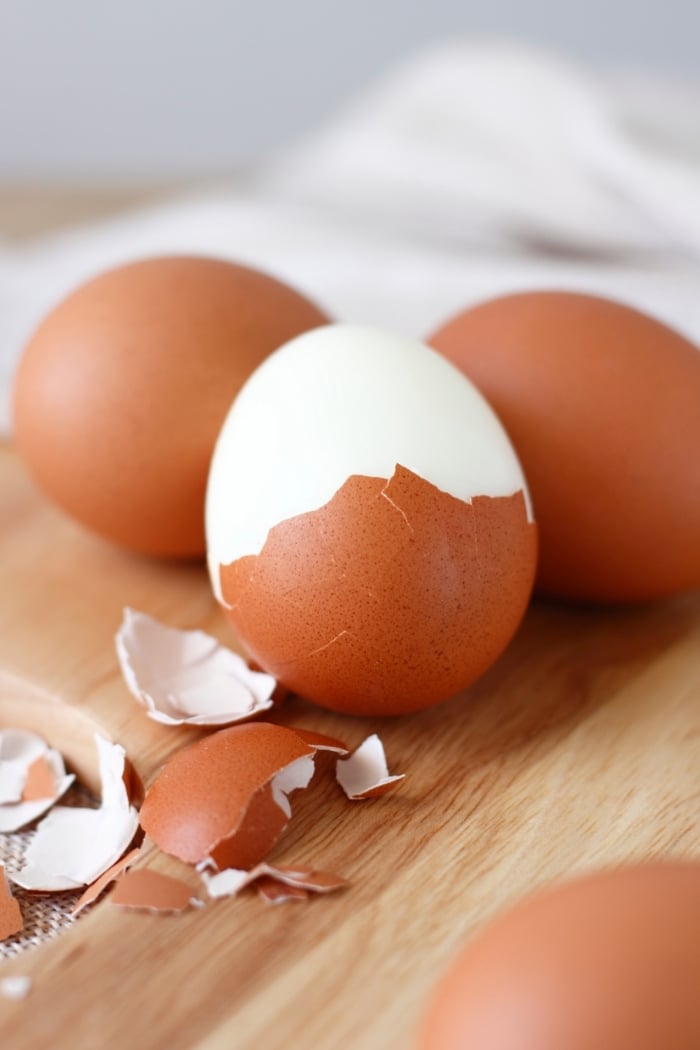
Hard Boiled Egg Recipe FAQs
Got questions about this recipe for easy peel boiled eggs? Here are the answers to a few commonly asked questions. Feel free to leave any other questions in the comments on this post and I’ll respond with answers.
Why is the shell sticking to my hard boiled egg?
Due to the lower pH levels in fresh eggs, the egg white proteins form strong connections to the keratin in the shell membrane while cooking. This makes it difficult to peel the eggs without bits of white sticking to the shell.
Why does baking soda make hard boiled eggs easy to peel?
Baking soda makes the water more alkaline which will help the egg whites loosen from the shell, making the peeling process much easier.
Adding baking soda to the water increases the alkalinity and softens the keratin. The result is a weaker bond between the white and the membrane—which means easy-peel eggs!
Will this work with farm-fresh eggs?
Farm fresh egg whites are more acidic. This causes the white to stick to the shell’s membrane which makes it more difficult to peel the eggs.
If you are using farm fresh eggs, you’ll want to let them age in the refrigerator until they’re older and/or add baking soda to the water to increase the pH of the boiling water.
How long should I cook hard boiled eggs?
Wondering how long to boil eggs on the stove?
How long you should cook hard boiled eggs depends on a few factors, especially the size of your egg (medium, large eggs, or extra larger) as well as how done you like your egg.
Using this method with a large egg, I found that the perfect time for me was around 12-13 minutes for a perfectly done, cooked all the way through yolk.
Since everyone has their own preferences, always recommend starting with cooking 1 egg to figure out your personal perfect cooking time for hard boiled eggs.
That way you aren’t cooking a whole batch of hard boiled eggs and finding that you prefer them cooked differently.
Why did my hard boiled eggs crack?
Eggs typically crack for one of these reasons:
- Adding eggs to a pot of water at a full rolling boil can cause the eggs to knock against each other and crack.
- Eggs can also crack due to the shock in temperature change when placing a cold eggs from the refrigerator into a pot of boiling water.
- Another reason the eggs can crack when adding them to a pot of boiling water is because you’re dropping them into the water to avoid the hot water. The eggs can crack from being dropped.
- The pot you’re using is too small, causing the eggs to crowd and bang into one another while cooking.
For these reasons it is recommended to use a pot with plenty of room and to boil eggs using a cold start for the cooking process.
Should hard boiled eggs be peeled immediately?
No, it is recommended to let eggs sit in an ice bath until completely cooled.
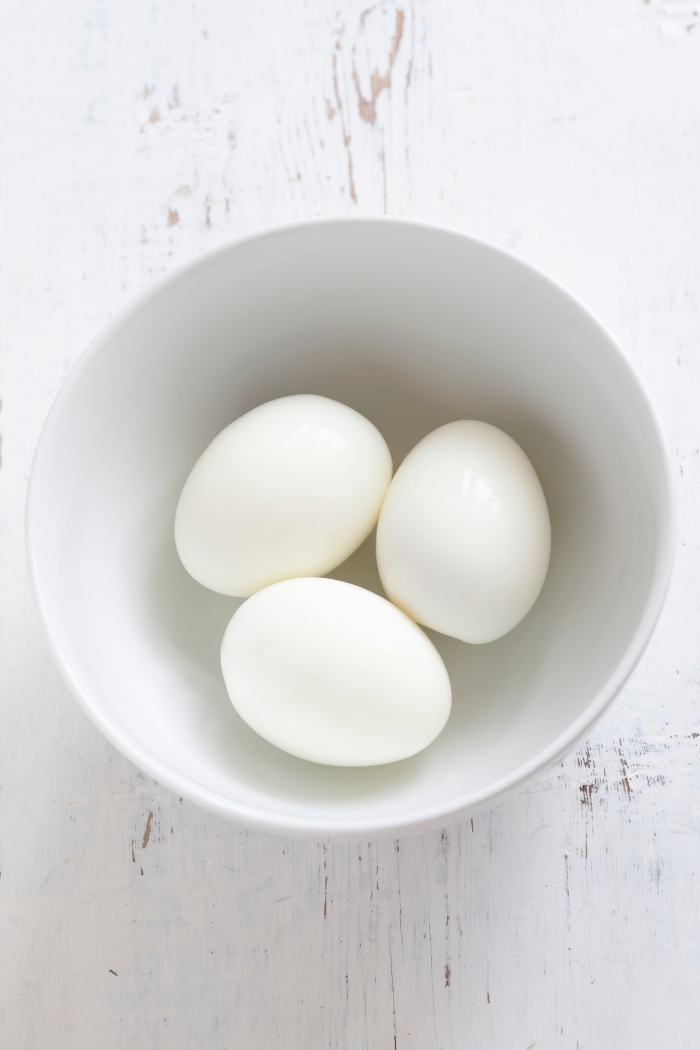
Save these Easy Peel Hard Boiled Eggs to Pinterest!
How long do hard boiled eggs last?
Wondering how long can you keep hard boiled eggs? These easy peel hard boiled eggs can be stored in the refrigerator — peeled or unpeeled — for up to 1 week.
So, if you’re a regular hard boiled egg eater, feel free to make a batch of eggs at the beginning of the week!
How should I store hard boiled eggs?
When storing pre-cooked hard boiled eggs, I recommend storing them in a sealed airtight container or sealed zip top bag in the refrigerator.
Cooked eggs, especially already peeled eggs, can cause odors in the refrigerator. Keeping them sealed helps keep your refrigerator smelling fresh.
If you do find yourself with some smells in your refrigerator, try these tips for deodorizing in your kitchen.
Try this Recipe at Home!
Next time you’re wondering how to make hard boiled eggs peel easily, give these tips a try!
Did these simple tips help you make easy peel eggs? Leave a comment below and give this tutorial a review for others to see what you thought of it.
On Instagram? Share your photo and tag me with @goodlifeeats and #goodlifeeatsrecipes. I’d love to see your hard boil egg successes!
More Easy Egg Recipes:
Check out some of these favorite recipes, or browse the recipe index archives for even more great recipe ideas:
Buffalo Chicken Cobb Salad is a delicious twist on the traditional cobb salad. This is a delicious recipe that uses these easy peel hard boiled eggs!
In this Chorizo and Eggs Scramble, scrambled eggs are combined with fresh spinach, cilantro, and spicy chorizo sausage.
These Southwest Breakfast Bowls are a great way to enjoy a protein-packed breakfast on busy weekday mornings.
I love making Baked Eggs with Sausage and Kale during the holidays! It makes for a hearty breakfast or brunch the whole family adores.
It doesn’t get better than this classic Quiche Lorraine Recipe. Homemade quiche is easier to make than you’d expect!
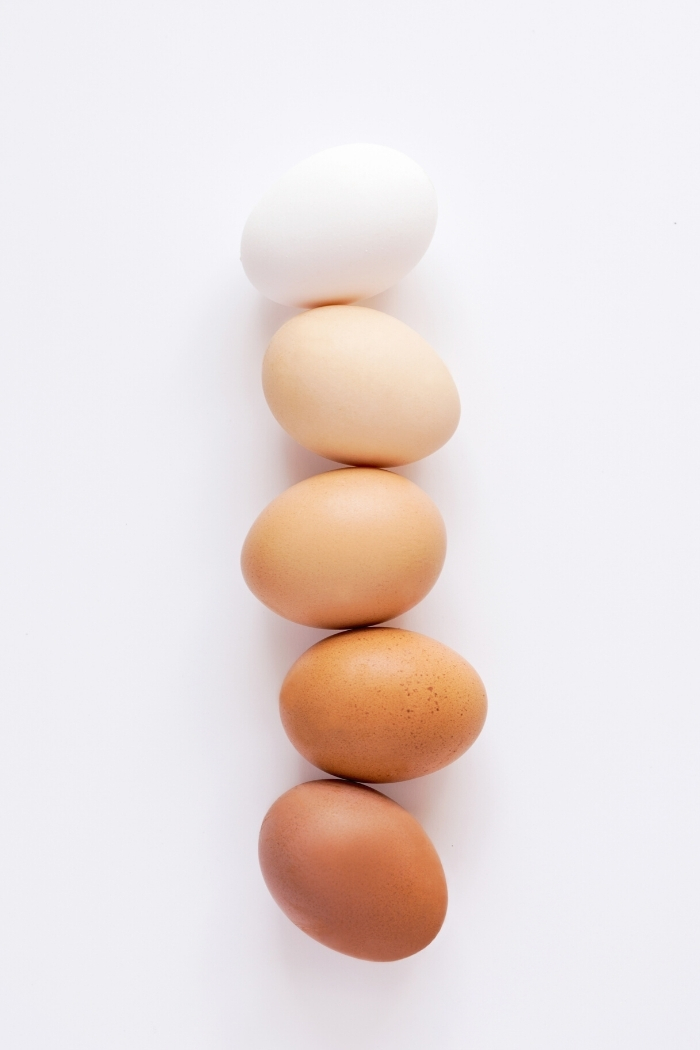
Get More Recipes via Email
Did you love this recipe for easy peel hard boiled eggs? Sign up to receive Good Life Eats Email Updates and never miss another recipe or kitchen tip!
Is making hard boiled eggs tricky for you? What is your favorite tip for perfect eggs?
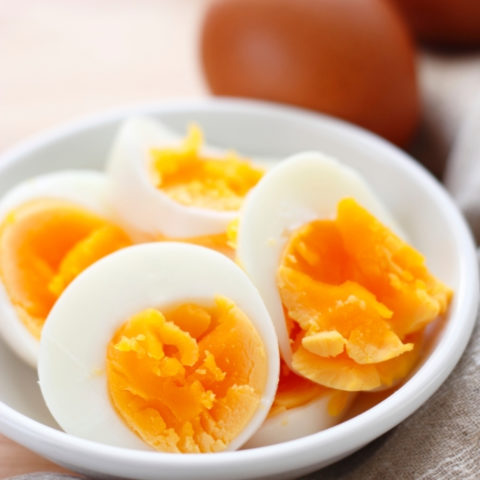
Easy Peel Hard Boiled Eggs
This recipe for easy peel hard-boiled eggs breaks down the best way to boil eggs so they're easy to peel. Follow these simple instructions for hard boiled eggs that turn out perfectly every time.
Ingredients
- 4 Large Eggs
- Water
- 1 teaspoon Salt
- 1 teaspoon Baking Soda
Instructions
- Put the egg(s) in a pot with cold water that completely covers the egg, plus a little extra water to spare. About an inch or so. The eggs should be in a single layer, so if you plan to boil a lot of eggs make sure your pot is large enough.
- Add one teaspoon each of salt and baking soda to the water.
- Bring the water to a boil over high heat. Make sure it is a strong, rolling boil. Let the egg boil for a minute or two.
- Turn the heat off, remove the pot from the burner and place it on an unheated burner or on the counter with a hot pad under it (so as not to damage your countertops) and cover it with a lid.
- Let rest for 10-15 minutes. Letting the egg rest in the hot water cooks the egg evenly without overcooking.
- Remove the hard boiled eggs from the hot water with a slotted spoon and transfer them to a bowl filled with ice water.
- When cool enough to handle, peel the egg. Peeling the hard boiled eggs under cold water helps make the peeling easier.
Notes
Hard Boiled Egg Tip
Purchase your eggs about a week in advance of when you’d like to prepare them.
Hard boiled egg cook times:
- Runny Yolk: runny egg yolks and barely done whites – cook for 5 to 6 minutes.
- Soft-Boiled Eggs: white is cooked but soft and yolk is jammy – cook for 8 minutes.
- Medium Boiled Eggs: white is fully cooked and firm, but center is not dry – cook for 10 minutes.
- Hard Boiled Eggs: white and yolk are both cooked through and firm – cook for 12 to 13 minutes.
Make Ahead Tip
If you are making many eggs at once for use through the next several days you can place them in the refrigerator. Cooked hard boiled eggs will last in the refrigerator for 5-7 days.
Recommended Products
As an Amazon Associate and member of other affiliate programs, I earn from qualifying purchases.
Nutrition Information:
Yield: 1 Serving Size: 1Amount Per Serving: Calories: 72Total Fat: 5gSaturated Fat: 2gTrans Fat: 0gUnsaturated Fat: 3gCholesterol: 186mgSodium: 2195mgCarbohydrates: 0gFiber: 0gSugar: 0gProtein: 6g
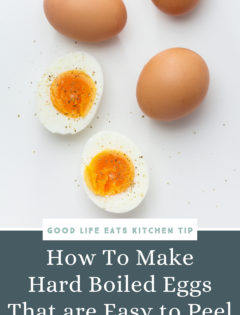
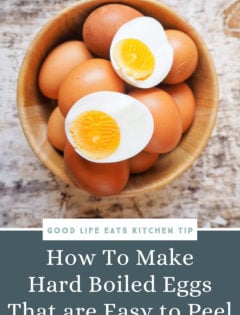
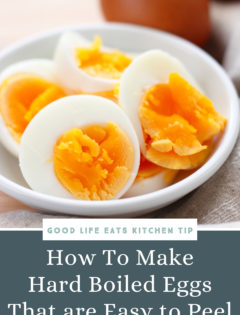
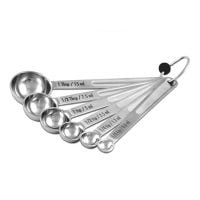
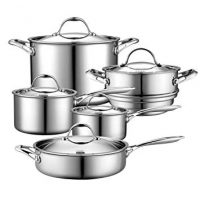
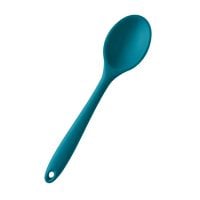
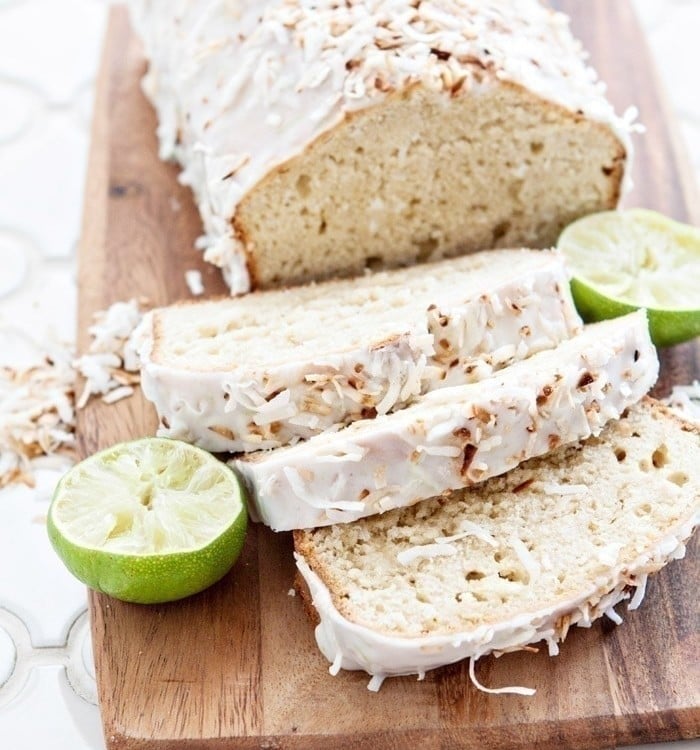
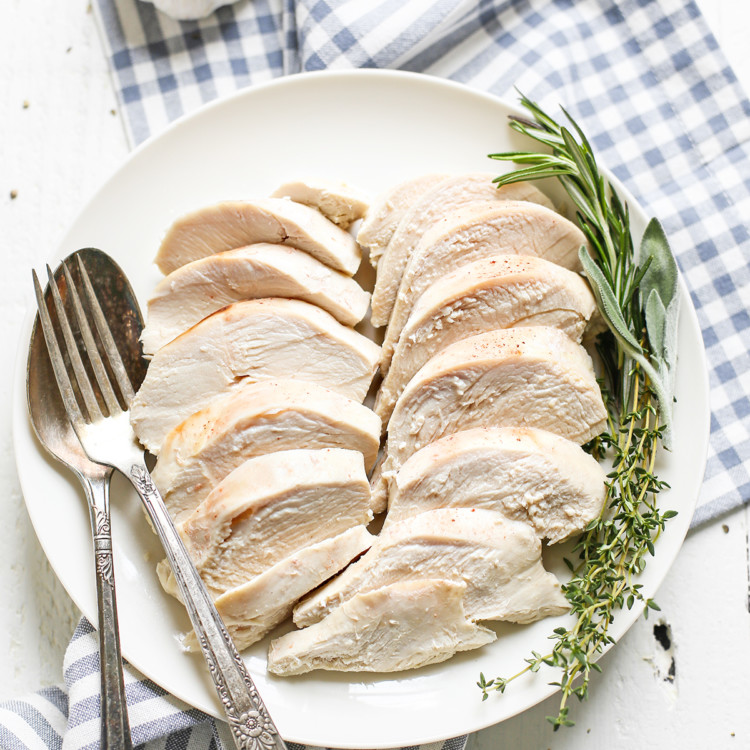
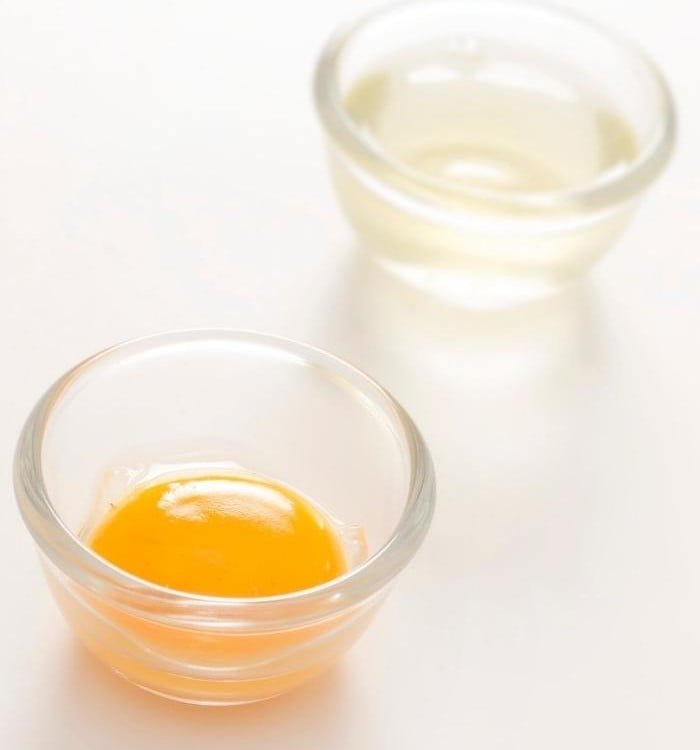
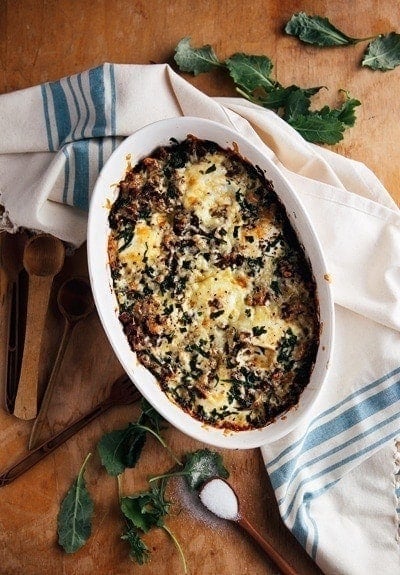
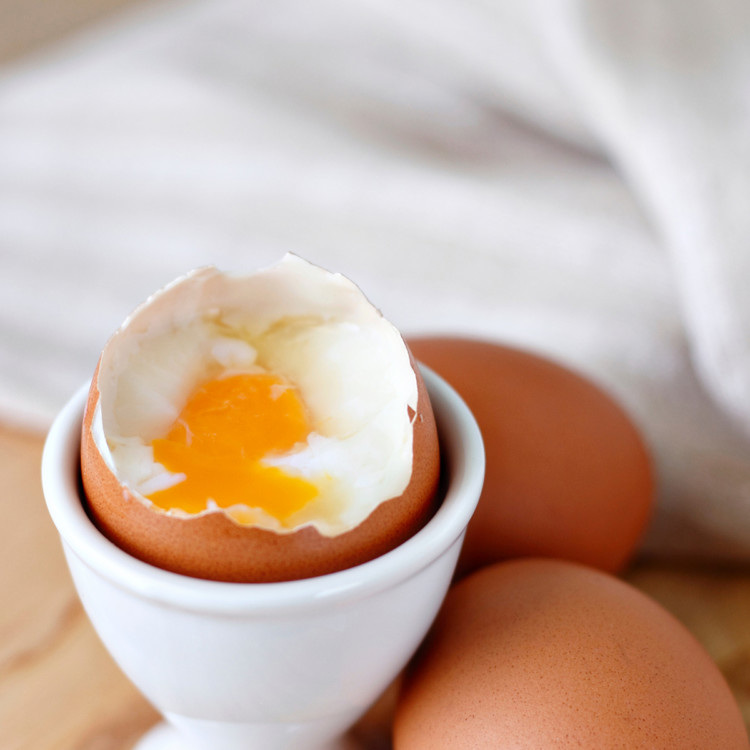
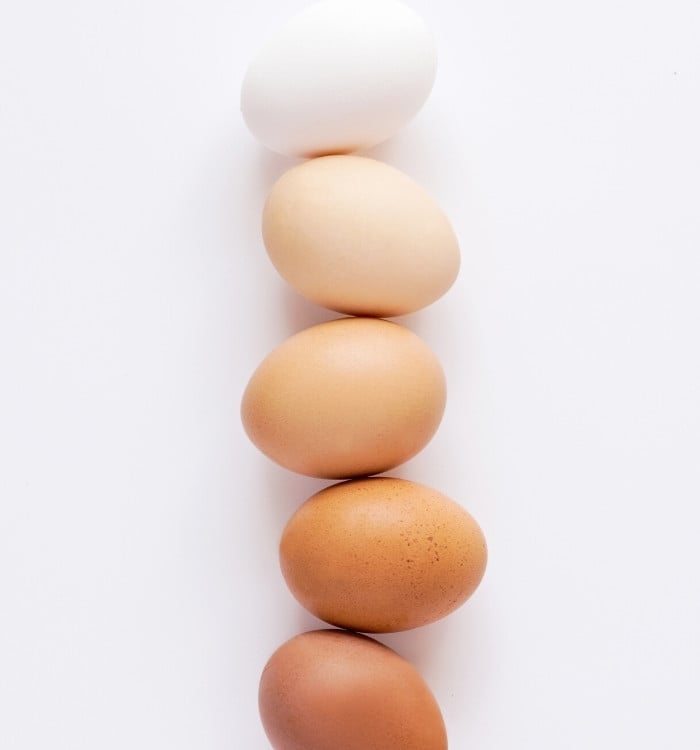
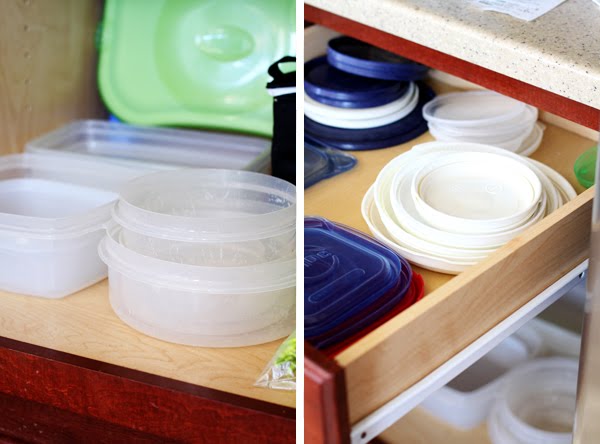
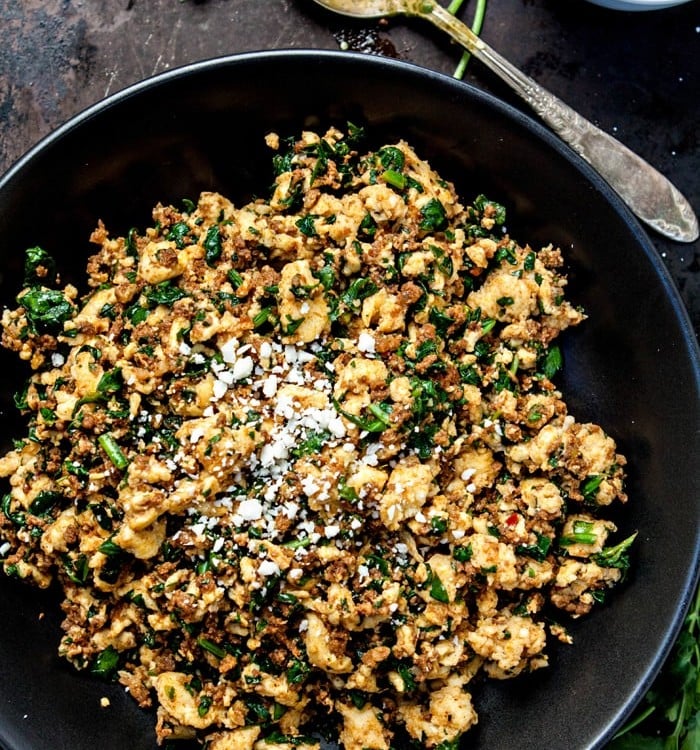
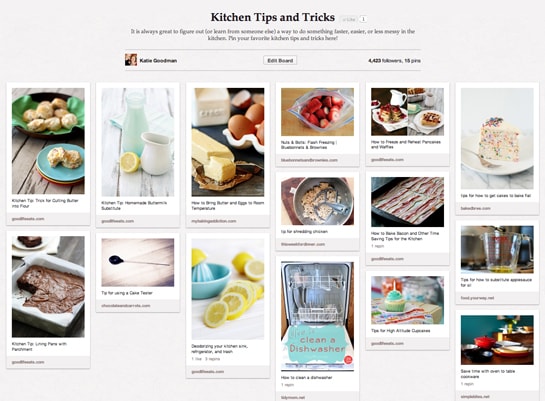
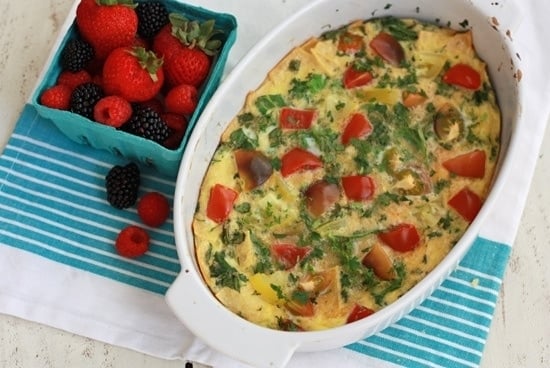

Sally says
I always have trouble peeling my eggs. These are awesome tips. Thanks! Egg salad sandwich anyone?
Jennifer says
This is a great article, thanks for sharing! I am big on deviled eggs so this is perfect!
Heather (Gluten-Free Cat) says
I’ve been cooking the life out of my poor little hard boiled eggs! I’m definitely going to try your method.
Jen @ My Kitchen Addiction says
Great tips! I never make hard boiled eggs, but now I am feeling inspired. Some egg salad sounds amazing.
Suzanna says
Use an egg piercer/needle/pin/sharp knife. Shock the eggs with cold water. That’s 2 of your problems solved.
Kristen says
We love hard boiled eggs around here – one of those things that are always in our fridge!
Mom's Many Projects says
Wonderful! I always make hard boiled eggs as you described, but never added salt. Now I know how to get the shells off without destroying the egg! Thanks!
Michelle says
The science behind why salting the water helps with peeling is due to osmosis. The water outside the egg wants to be at the same salinity (salt content) as the water inside the shell. So the process of osmosis pulls some of the water inside the egg through the shell. Therefore, the volume of water inside the egg will decrease slightly and the egg will pull away from the shell.
If you’re in the mood for a little science experiment, take an egg and put it in a cup and fill the cup past the top of the egg with vinegar and put in the refrigerator overnight… After about a day, check on the egg. Hopefully the shell has completely dissolved and you’re left with an egg held together just by the membrane… If it hasn’t fully dissolved, carefully pour out the liquid and refill with more vinegar and back into the fridge overnight.
Once you have your shell-less egg, carefully pour out the vinegar and replace with very salty water (or corn syrup) and back into the fridge. Over time (about 24 hours), the egg will shrivel as the water is pulled out of the egg.
Poet says
Have used an egg piercer for years. pierce the round fat end and do as is posted. When you suspect they are done pull one out with a spoon. Will dry very fast when done. To peal them put the pot in the sink carefully pot holders or oven mit are good ideas. Run cold water into the pot with the sink drain clear and open. When you can comfortably put a finger in the water they should be cool enough to handle. Put a container nearby for your shelled eggs. Bang those fat ends inside the water in the pan. Roll them around to break the shells gently, while under the cool water peal them and over 90 percent will be whole. The clear membrane is what we are working with when you pierce them. The water also aides in the pealing afterward.
Katrina (gluten free gidget) says
Would you believe I have never hard-boiled eggs? I’m intimidated by it, for some reason!
Jamie | My Baking Addiction says
This post is helpful, Katie! There is nothing better than a perfectly cooked hard boiled egg!
Carol says
the green ring will be avoided by chilling immediately when done. Run cold water. To help peel i drain all the water and shake the eggs to crack each one. Helps a lot
Maria says
Very helpful post! Thanks! I love that egg crate too! Beautiful photos!
April says
adding salt to the water has another purpose too- if the shell cracks while boiling, the salt helps clot the white quicker.
Ann says
I always add a splash of any ole vinegar which prevent the egg from leaching out into the water should (heaven forbid) one of the eggs cracks.
Ann3Angels
Brook Owens says
This is good information. I feel like my eggs always turn out different every time I boil them. My parents have chickens so we get a bunch of REALLY FRESH eggs and I’ve noticed with those I lose most of the white when peeling them! Good to know! Thanks!